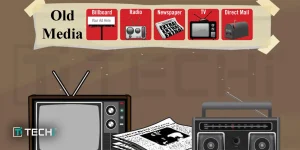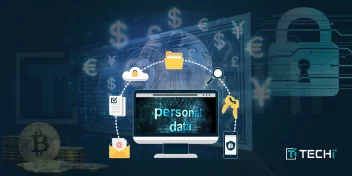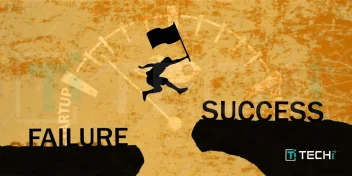Though we have, over the past few years, become accustomed to rather strange, aggressive ideas from those who run the movie and music businesses, the latest move from the RIAA and MPAA is a little astounding.
Today, the Electronic Frontier Foundation, an organization dedicated to defending internet users’ rights, outlined some of the suggestions made by the media conglomerates for protecting their content. They, along with many other players, were asked to weigh in on how intellectual property should be treated in a changing, networked world.
And you know what the MPAA and RIAA suggested? Well, among other things:
- Anti-infringement spyware to be installed on users systems
- Filtering technology on internet service provider’s networks to prevent the spread of copyrighted material
- ‘Inform’ and ‘educate’ (i.e. harass) entrants to the US about the ‘dangers of pirated material’
- Intimidate countries that do not agree with these policies, using US economic clout to threaten them
- Use federal resources to employ agents to crack down on copyright thieves
So, how does that sound? Having spyware installed on your system and monitoring what you’re watching? Having your ISP filtered and throttled so that the MPAA and RIAA can control what gets distributed around the internet? Super, right?
But it isn’t simply the stunning sense of entitlement and invasiveness that’s the issue here. There’s something bigger at stake than simply ‘this is not how you should treat your customers’.
What the RIAA and MPAA have failed to understand is that new technologies like the web don’t simply represent new ways to pirate material – they are part of a seismic change in culture. By failing to understand that this is a cultural and not only technological or economic shift, media businesses are on the brink of becoming obsolete due to an obsession with control.
Technically speaking, you might articulate the change in how we think of these things by talking about ‘the economics of scarcity’ vs. the ‘economics of abundance’.
See, physical media is hard and expensive to create and distribute – not only do you have to find the materials to press CDs or print books, you have to then distribute them on trucks and trains and what-have-you. This creates an economic system based on scarcity, or as we more traditionally think of it, supply and demand. Limited by physical constraints like materials and labor, you make a certain number of things and then you set the price based on how many people want that thing.
But when you switch to digital, this scarcity often disappears. An MP3 or movie file or eBook is just ones and zeroes. After the initial costs of creation are done with, creating a new copy costs almost nothing. Suddenly, things are abundant – there is no physical limit on how many of something can be made – and this changes things.
But that’s only the economic side of things. Culturally, there has also been a shift in how we think of accessing content like TV shows or films or music. Whereas once it seemed to make sense to save our pennies for new records or films, it’s now much harder to justify that expense because there is so much available for free, legitimately or not. You know this – it’s everywhere around the web, because no-one can control the spread of information.
People will often talk about this in terms of ‘stealing’ or ‘entitlement’ – which has it merits – but also misses the point. Once a person has experienced the freedom of something like Napster or Bittorrent, it’s hard to put that genie back in the bottle. It isn’t about ‘thieving’ as much as it is this: once you know what it’s like to access culture with such freedom, going back to the basics of plunking down 20 bucks for a iTunes movie you can’t copy, can’t take to your friends house or can’t watch on your PS3 not only feels strange, it feels plain backwards and absurd.

By attempting to replicate the scarcity model in the digital age, media businesses have made clunky DRM’ed products and have alienated consumers, and they are voting with their wallets. It might seem sensible to try crack down on consumers, but it’s like trying to nail jello to wall: you can’t do it, and it wasn’t a very good idea in the first place.
That may be controversial – and might even seem to support piracy – but that isn’t the case.
There are solutions to this problem, among the best of which is something like ‘monetizing the pipes’ – i.e. charge for the distribution. Another option is something like eMusic, which makes you pay a set amount for a certain number of MP3s a month. More options include what Mike Masnick calls ‘finding other scarcities’ like musicians making money from live shows and merchandise but giving the music away for free.
But the point boils down to this: the world has changed. The internet works on principles of openness and exchange, and information and content ricochet around at an amazing rate. You just can’t control that without unfairly limiting people’ experiences of the web. This is what the MPAA and RIAA have failed to understand. They are still working in a mindset that is based on scarcity – we have a limited amount of product, and we have to protect it – and that’s an ideal that certainly was noble and fair years ago.
But when culture and technology have changed so drastically, and digital information fundamentally works through copying and spreading, it’s also a naive one. Rather than trying to lock down the entire internet and the exchange of media, those concerned should be looking to establish new business models or new products that draw people in (like Avatar, for example).
After all, if they don’t, it’s not we who will lose. People will continue to create, and they will find ways to finance and distribute them using new tech. The MPAA and RIAA, on the other hand – well, it may already be too late for them and the lumbering dinosaurs who lead them.





castle
Can someone please define ‘stealing’ for me? I was under the impression that the bad thing about theft is that the victim is deprived of rightful property.
Hypothetically, if a time traveler came to me with a Star Trek style replicator that allowed me to make perfect copies of objects while leaving the original intact, and I duplicated my neighbor’s Porsche without harming or taking his, would I be stealing from him? What harm would be done? Would it be stealing from Porsche? What if I build a car by hand that looks exactly like a Porsche? Will I have I deprived them of a sale—even if I cannot afford to buy from them new? Would they be entitled to my money? Would it be reasonable or civil to toss me in a cage full of murderers and rapists because of it? Should we outlaw or cripple this type of technology if and when it becomes available?
What happened to sensible, logical property rights? Have corporate greed, the ignorant masses and Stephen destroyed them completely?
Tony
He’s right, the world has changed, the media companies need to change their business models.
Post scarcity is coming, like it or not, and this sense of control over information and ideas, doesn’t apply anymore. Things like land and physical matter will still have a price of some sort but ideas and media will be free.
Back in the day artists got by via patrons, same is going to happen in the future, mass consumerism was a bad phase we went though and thankfully it is drawing to a close.
Riles
I believe the hard reality of the situation is simply that the business model for the RIAA/MPAA is still too big to effectively change to a new one – it is shrinking fast, but hasn’t declined enough for the suits to give up on it. There is too much risk for them so they would still rather expend resources to protect a dying business model than make the jump to a new one. They can rant and rave about stealing all they want, but the fact of the matter is that they are selling a crippled, out-dated product that many people simply refuse to buy – and then they proceed to sue out of business any services that would help them actually sell more music.
Which isn’t to say that the business model shift isn’t happening without them. The new “media” companies are basically eating their lunch. Microsoft, Apple, Google, Facebook, Twitter, etc – these companies are insanely profitable (or will be shortly) and as more and more consumer and advertising dollars shift in that direction, the traditional media companies will continue to decline. They will simply become content feeders for the new media companies or will just dry up altogether. Artists and content creators will follow the money – as will consumers until the old media companies become completely irrelevant. If I were an investor in those companies, I would be extremely upset.
To me, I just see it as a completely wasted opportunity. Facebook as a company is worth about as much as all the music labels combined (and never mind the insane amount of cash that companies like Google, Apply and Microsoft are making in media related businesses). The ironic thing – the RIAA companies could launch a competitive social network tomorrow that would be insanely popular and highly profitable by integrating media content they own into the network. They could establish a world-wide ad platform that would rival Google’s and could drive sales of their other products. The ways in which content providers can make money in this day and age are insane – open your eyes, the business models already exist and are earning billions and billions of dollars every year for companies that are taking advantage of them.
Nick
Napster was the biggest mistake ever for these guys. Look how much they couldve used the service to their benefit by leaking a song or two. Now the problem is out of control and there is no way to stop it, unless they create a new medium, such as 3d audio or the like that can not be used or diwnloaded on PCs.
Toby
Given the choice of innovating or sticking with the model that suited them and sticking their head in the sand, they chose the latter, and are now at war with their target audience. Good luck, guys.